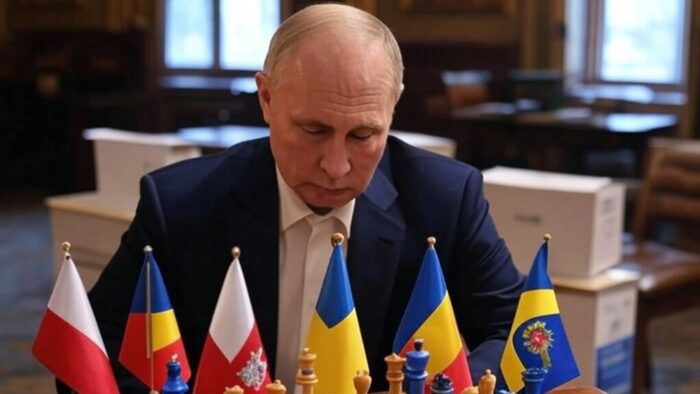Russia appears to be intensifying hybrid operations against Moldova, leveraging disinformation and false narratives to portray Western alliances as instigators of conflict while planning destabilization tactics. Moscow has repeatedly tried to destabilize Moldova to allow for pro-Russian regime change. The threat of Russian hybrid attacks is growing as Russian military analysts speculate that Russian military warehouses in Transnistria could fall into the hands of Ukraine. Experts on Moldova expect Russian hybrid warfare in the run-up to their September parliamentary elections, but agree that the Kremlin will not be able to transfer enough troops to the area for military intervention.
Read more: https://jamestown.org/program/moscow-seeks-to-retain-influence-over-moldova/
Key Points
- Pro-Russian analyst Yuri Vasilevich spread Kremlin narratives claiming Ukraine and NATO are attempting to drag Moldova into war through media appearances
- Moscow previously planned provocations to orchestrate a coup d’état that would overthrow the pro-EU government and install pro-Russian puppets in 2023
- Russian experts aim to implement a “Georgian scenario” in Moldova, establishing a Kremlin-controlled parliament through electoral manipulation and influence operations
- The Kremlin currently relies on hybrid non-military tactics including disinformation, propaganda, and bribery rather than direct military intervention ahead of September elections
Moldova Under Russian Influence: Kremlin’s Hybrid War Escalates
Russia’s systematic campaign to undermine Moldova’s democratic trajectory has intensified dramatically since 2024, with Moscow deploying a comprehensive hybrid warfare strategy that targets the country’s electoral processes, energy infrastructure, and social cohesion. The Kremlin’s operations have evolved from traditional political interference to sophisticated multi-vector attacks, including massive vote-buying schemes orchestrated by sanctioned oligarch Ilan Șor, who coordinated a €200 million influence campaign from Moscow with direct FSB oversight. Russian intelligence services have established coordinated destabilization efforts that exploit regional divisions in Gagauzia and Transnistria while simultaneously conducting cyberattacks, disinformation campaigns, and training operatives in Balkan camps to orchestrate violent protests aimed at toppling President Maia Sandu’s pro-European government. The scale of these operations reflects Russia’s strategic imperative to prevent Moldova’s EU integration, with international cooperation emerging as a critical countermeasure as Moldova approaches its pivotal 2025 parliamentary elections that will determine whether the country continues its westward trajectory or falls back into Moscow’s sphere of influence.
External References:
Disclaimer
The Global Influence Operations Report (GIOR) employs AI throughout the posting process, including generating summaries of news items, the introduction, key points, and often the “context” section. We recommend verifying all information before use. Additionally, images are AI-generated and intended solely for illustrative purposes. While they represent the events or individuals discussed, they should not be interpreted as real-world photography.











